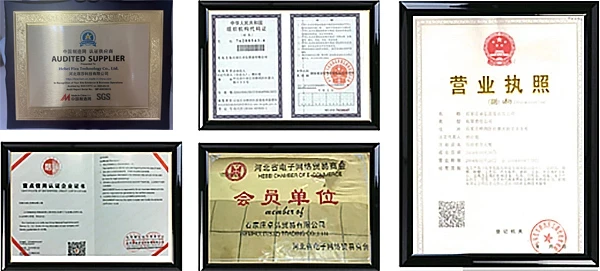



sodium bisulfate ka
Understanding Sodium Bisulfate and Its Acidic Properties
Sodium bisulfate, also known as sodium hydrogen sulfate, is a chemical compound with the formula NaHSO₄. This compound plays a significant role in various applications across different industries, particularly due to its acidic properties. In this article, we will explore the characteristics of sodium bisulfate, its acid dissociation constant (Ka), and its practical uses.
One of the most notable features of sodium bisulfate is its ability to act as a weak acid in aqueous solutions. When dissolved in water, it partially dissociates to release hydrogen ions (H⁺). The equilibrium can be represented as follows
Understanding Sodium Bisulfate and Its Acidic Properties
The dissociation of sodium bisulfate results in the formation of the bisulfate ion (HSO₄⁻), which is responsible for its acidic behavior. The acid dissociation constant, or Ka, quantifies the strength of this weak acid. For bisulfate, the Ka value is approximately 1.2 x 10⁻², suggesting that it is a reasonably strong acid among weak acids. The presence of this ion in solution allows sodium bisulfate to regulate pH levels effectively.
sodium bisulfate ka

Sodium bisulfate's acidic properties make it a valuable chemical in many industries. It is commonly used in the food industry as a food additive, specifically as a pH control agent. This characteristic is particularly important in processing and preserving food products, where optimal acidity is essential for taste and shelf-life.
In the cleaning industry, sodium bisulfate serves as an effective descaling agent. Its acidic nature allows it to dissolve mineral deposits and other unwanted residues, making it a preferred choice for cleaning applications in household and industrial settings. It is often used in formulations for cleaning products designed to remove hard water buildup and rust stains.
Another significant application of sodium bisulfate is in swimming pool maintenance. Pool owners utilize sodium bisulfate to lower the pH of pool water, ensuring it remains within the optimal range for swimmer comfort and chlorine effectiveness. This adjustment helps prevent skin and eye irritation while promoting a safe and enjoyable swimming environment.
Additionally, sodium bisulfate is used in the textile industry for dyeing and finishing processes. Its ability to maintain specific pH levels facilitates uniform dye uptake and enhances the overall quality of fabric products.
In conclusion, sodium bisulfate is a versatile compound with crucial acidic properties that find applications across various sectors, from food preservation to cleaning and pool maintenance. Its Ka value signifies its effectiveness as a weak acid, enabling it to regulate pH levels efficiently. As industries continue to seek sustainable and effective chemical solutions, sodium bisulfate will likely remain an important player in this landscape. Emphasizing safety and proper handling, its utility will continue to grow in diverse applications, showcasing its significance in both industrial and consumer contexts.
-
Why Sodium Persulfate Is Everywhere NowNewsJul.07,2025
-
Why Polyacrylamide Is in High DemandNewsJul.07,2025
-
Understanding Paint Chemicals and Their ApplicationsNewsJul.07,2025
-
Smart Use Of Mining ChemicalsNewsJul.07,2025
-
Practical Uses of Potassium MonopersulfateNewsJul.07,2025
-
Agrochemicals In Real FarmingNewsJul.07,2025
-
Sodium Chlorite Hot UsesNewsJul.01,2025










